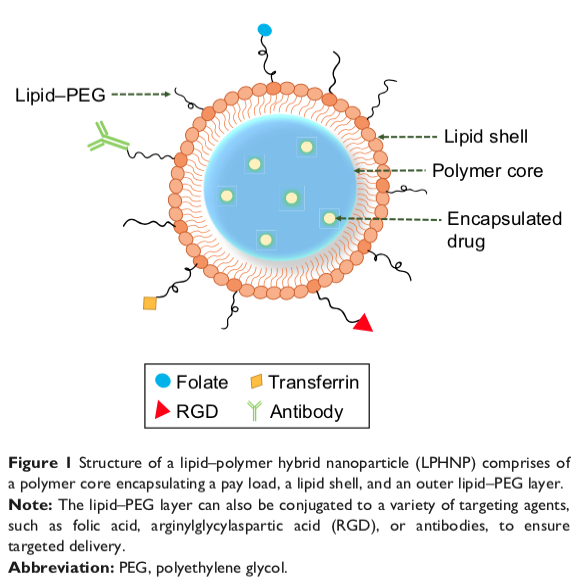
Nanoparticles as a Next-Generation Drug Delivery In Cancer Treatment
by Guest Author
Lipid–polymer hybrid nanoparticles as a next-generation drug delivery platform: state of the art, emerging technologies, and perspectives
 Nanotechnology is a compelling medicinal platform in oncology and the neurosciences, with the potential to greatly impact the delivery of many therapeutics, including small molecule therapeutics, genes, RNAs, peptides, and diagnostic imaging agents.
Nanotechnology is a compelling medicinal platform in oncology and the neurosciences, with the potential to greatly impact the delivery of many therapeutics, including small molecule therapeutics, genes, RNAs, peptides, and diagnostic imaging agents.
Lipid–polymer hybrid nanoparticles (LPHNPs) are next-generation core–shell nanostructures, derived from both liposome and polymeric nanoparticles (NPs), where a polymer core remains enveloped by a lipid layer.

Although they have garnered significant interest, they remain not yet widely exploited or ubiquitous. Recently, a fundamental transformation has occurred in the preparation of LPHNPs, characterized by a transition from a two-step to a one-step strategy.
This two-in-one structure is of particular interest as a drug delivery platform in cancer treatment.
In particular, the outer surface can be structured in several ways for active targeting of anticancer therapy, delivery of DNA or RNA materials, and use as a diagnostic imaging agent.

In a recent review article published by Dr. Venkata Mahidhar Yenugonda and colleagues in the March 2019 issue of International Journal of Nanomedicine, he provides an update on recent key advancements in design, synthesis, and bioactivity evaluation as well as discussion of future clinical possibilities of LPHNPs. Dr. Yenugonda is an Associate Professor in the Department of Translational Neurosciences and Neurotherapeutics at the Saint John’s Cancer Institute, and Director of Drug Discovery and Nanomedicine Research Program at Pacific Neuroscience Institute.
Paper authors are Anubhab Mukherjee PhD, Ariana K. Waters, Pranav Kalyan, Achal Singh Achrol MD, Santosh Kesari MD PhD, and Venkata Mahidhar Yenugonda, MPhil, PhD.
Adapted from abstract published March 2019 in International Journal of Nanomedicine.
Last updated: April 2nd, 2019